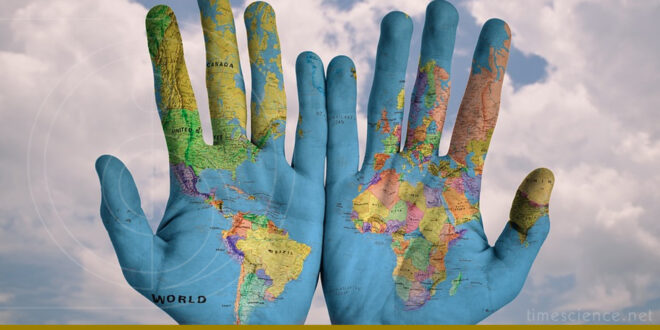Can a scholar from the East declare the birth of a new science?
If he dares, then declares establishing a new science, how is he going to do? Where is he going to head to?
What is the guarantee that he will be treated fairly by the local academic then the international circles?
Most of the research and studies about time refer to “Greece” as the founding fathers of time sciences, then immediately jump to the European renaissance, which the Western and Eastern authors are both alike. We can model this by one of the hundreds of books entitled “time in Philosophy and science” written by Yumna Al-khuli, who says:
“The great prominent mathematical and philosophical scholar Alfred North Whitehead said a famous quote that the entire history of philosophy is about nothing but margins of the Plato’s philosophy. This problematic of time in the old Eastern thought, which remained subject to inconsistent ideas, until the great philosopher Plato came to set the dialogue and interpret its establishment to distinguish between time and eternity”.
The evidence of this assassination was indicated by a number of writers, from the East and the West like Edward Saïd in his book “Orientalism: Western Conceptions of the Orient”, Seyyed Hossein Nasr “Islam and the Plight of Modern Man” and Hamilton Morgan “Lost History: The Enduring Legacy of Muslim Scientists, Thinkers, and Artists”.
Some contemporary Muslim scholars suggested and pointed out to sciences (1) in their books; however, most of them did not find resonance, and did neither leave the desired impact nor the real interaction; therefore, in his book “Destination of the Islamic world” Malek Bennabi formulated the concept of “the science of renewing the relationship with God”, “changing oneself means enabling it to overcome its current situation, this is not related to “Ilm Al-Kalam = science of discourse”, yet it is part of “Sufism”, in other words, it is a science that does not yet have “a name” and can be called (renewing the relationship with God)” he said.
1 – We can highlight “jurisprudence of bias” at Dr. Al-Messiri, and the efforts of classifying sciences in Sudan, especially what was accomplished in terms of “science of Zakat”, “science of family” and “Modern Al-Khalili theory” according Abderrahmane Hadj-Salah.
After a long journey of dealing with Western and the Eastern philosophies, Hassan Hanafi ended up drafting the new science project and stated through his book entitled “Introduction to Occidentalism” (in more than 800 pages) where he indicated that it was a fruit of four decades dedicated for research and writing; he said “Occidentalism is a task that aims to eradicate the feeling of inferiority before the West, in terms of language, culture and science; then as doctrines, theories and opinions” then admitted that in order to have this science completed, it “may take many generations”, but it is important to start and get freedom.
I like it when he pointed out that “concerns of short life” threaten the project, he said: “the biggest cons about the introduction in Occidentalism are the concerns of short life, because time passes, the age gets shorter and death approaches”.
The best example of overcoming the complex of orientalism, because he achieved what needs to be achieved in centuries; is Fuat Sezgin (died 1439A.H/ 2018 A.D); who was the best example and model to follow; as he far surpassed in his encyclopedia what Carl Brockelmann achieved, despite the fact that eastern universities still refer to Brockelmann and ignore or deny Sezgin.
Sezgin spent more than fifty years using means and potentials that no Ministries and countries can afford (for instance, he had his own airplane, that he used to look for manuscripts or investigating information), besides his scientific capacities (of more than twenty languages), his hard work (seventeen hours a day, until the last few years of his life) and the environment where he worked (Germany, Frankfurt university) …
Therefore, he ended up setting the bases of “history of sciences” science, using a new approach, vision and approach.
He also ended up creating a museum of more than one thousand machines and inventions pertaining to the Islamic heritage, which are in their original shape; i.e., functioning as the first time they were created.
He ended up with more than two thousand (2000) books, some of which investigated and some others written, assisted by dozens of researchers and scholars throughout the world.
Irfan Yilmaz quoted in his book entitled “The Discoverer of the Lost Treasure” Fuat Sezgin’s saying:
“None knew the Muslims’ value in terms of science, everything known about their achievements was just some Astrolabes, and the western world hides these facts on purpose, while Muslims ignore them. I have always said that the Islamic world is not what so many people think, and I believe that Islam cares a lot about knowledge … I do not accept accusing our religion Islam to be the reason of the backwardness of Muslims today”.
Written by: Dr. Mohamed Babaami
Translated by: Toufik Achour
Date: 15/12/2022
The Article title in Arabic:الشرق ومحاولة الخروج من عقدة الدونية
 علم الزمن والوقت
علم الزمن والوقت


